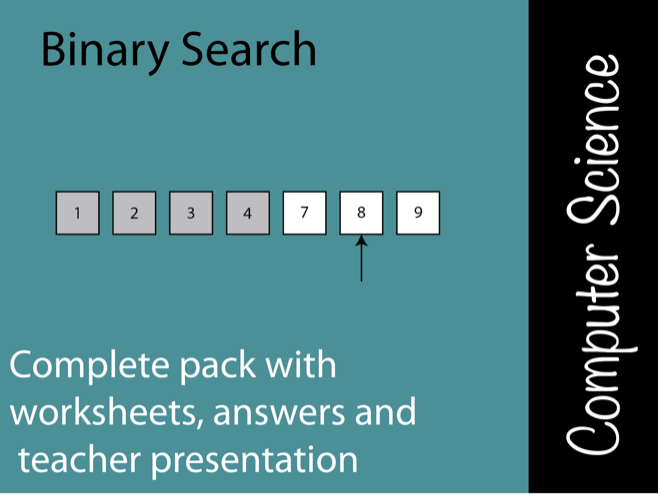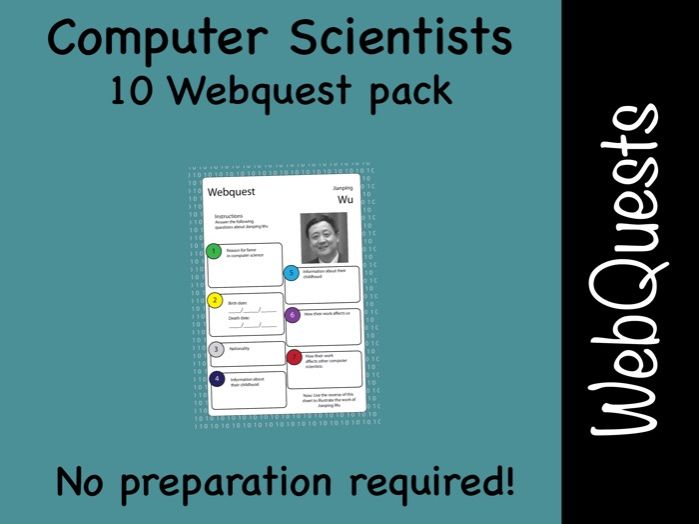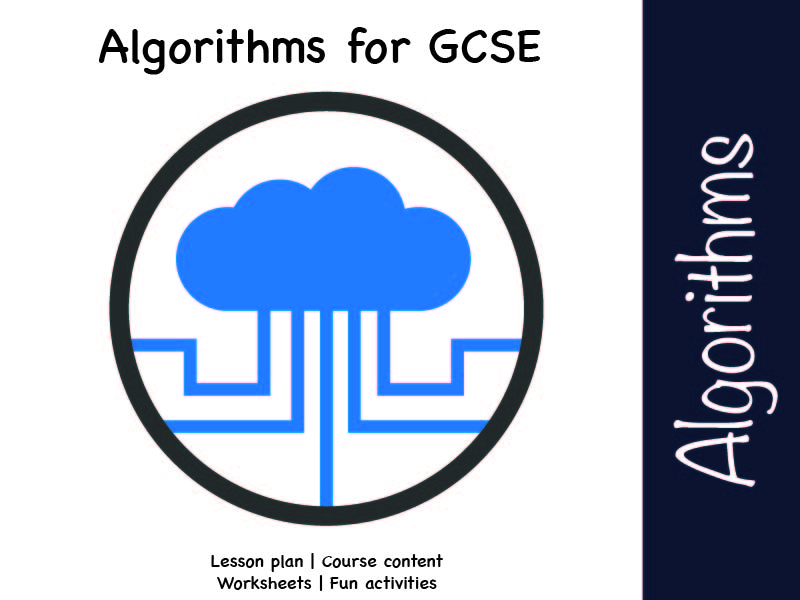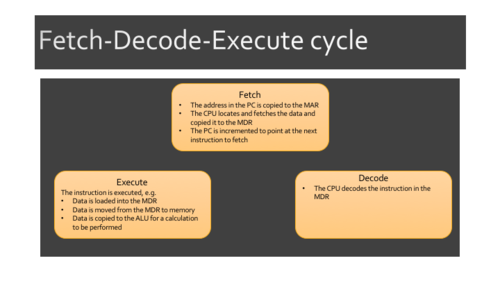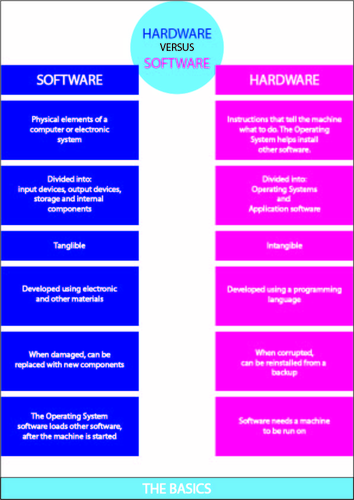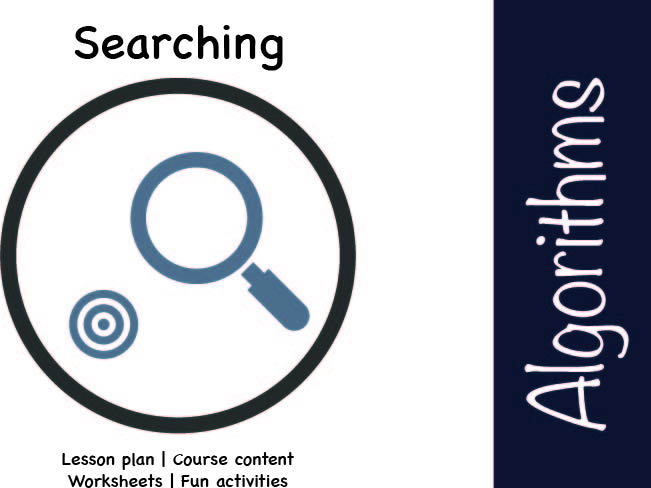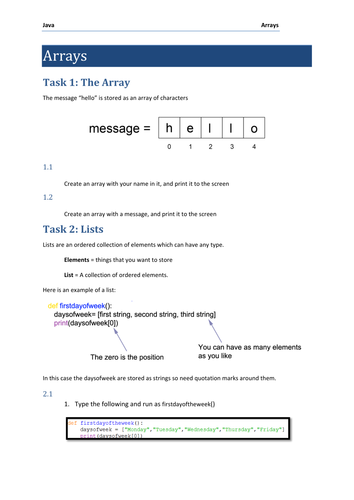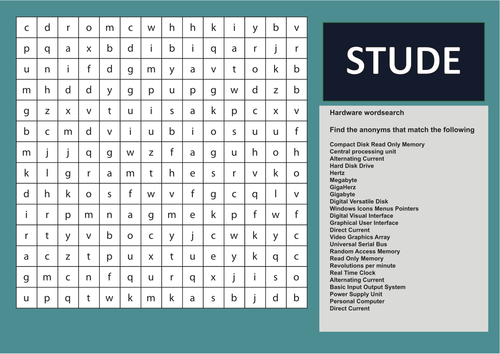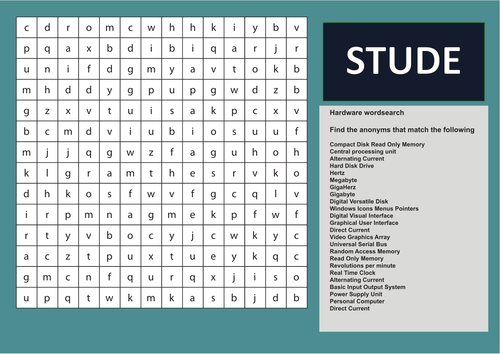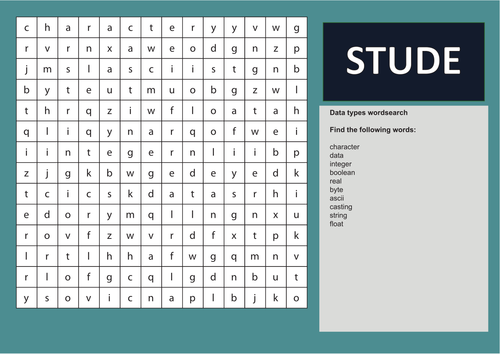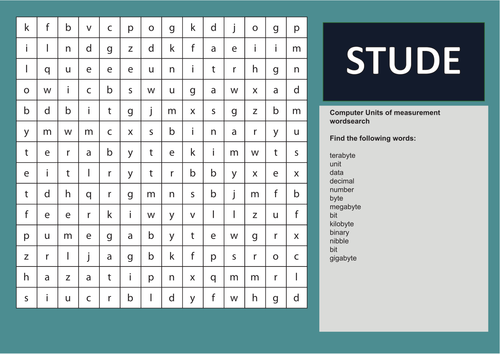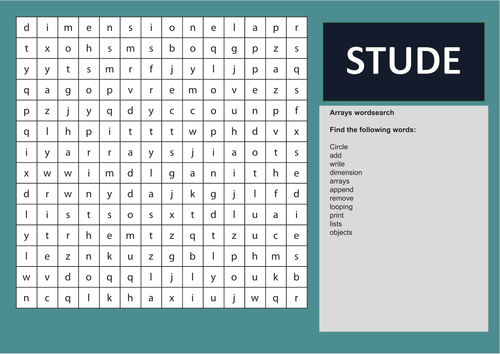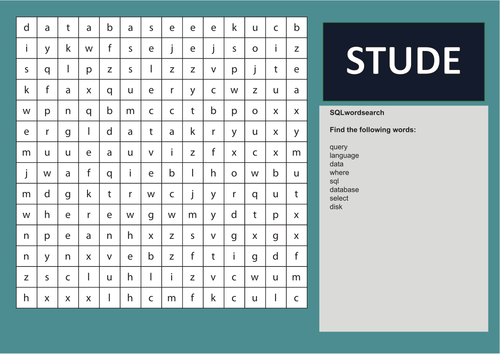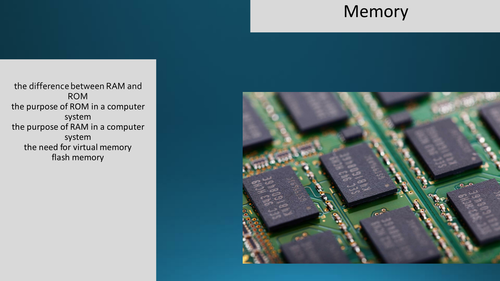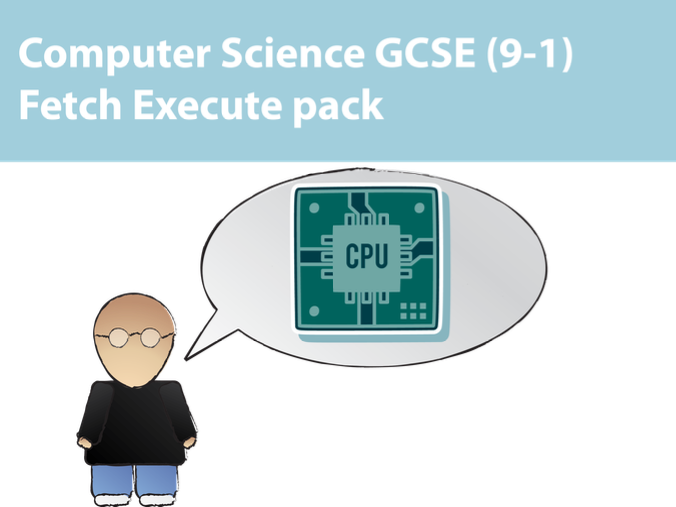
546Uploads
228k+Views
80k+Downloads
Computing

Regular expressions for GCSE and A level computing
An introductory presentation and worksheet (with answers!) that can be used for GCSE students or, likely, A-level students.

Internet Safety Lesson - Managing screen time
A full set of resources for a lesson around screentime.
Covers identifying habits and behaviours (e.g., excessive screen time or video game usage) that can be detrimental to health, and explain how people can be encouraged to adopt healthier alternatives.
Resources include:
Discussions
Brainstorming
Collages
Track your screen time

Dijkstra's Algorithm for Computer Science
Dijkstra’s Algorithm
The way I would run this is to talk through the motivation for the algorithm from the presentation, and give the terminology worksheet to be filled in (answer in the presentation). We’d then work through the brute force worksheet. I might then run through the example, then give them the simple graph to fill in. Than we would work through TaskGraph1 for the graphs. Then I might get them to either code, or come up with graphs for them to solve in small groups or in pairs.
Included:
TPT presentation
Labels to fill in worksheets to give structure for the students to fill in answers
TaskGraph1 3 graphs to run Dijkstras on.
AnswerGraph1 and 2 -answers for the graphs
Brute force worksheet and brute force worksheet answers

Binary Search full lesson
A full lesson for Binary search.
The intention is for you to run through the presentation with the basics of the algorithm.
The resources are not language dependent (although the coding challenge does have a solution in Python, this is easily changed to your language of choice)
Students then have arrows cut out of ArrowsActivityResources.docx and record the algorithm stepping through numbers.docx
The students then optionally step through NamesToSearch.docx
Students then code TaskPseudocodeGuessingGame.doc
Then students should be able to code the binary search algorithm!

Computer science and computing web quest (webquest) pack
Students can discover more about famous computer scientists in a fun and interactive way.
Zero preparation for the teacher!
From Steve Jobs to Tim Berners-Lee there are many famous computer scientists. But how many do your students know?
Students respond to open-ended questions in this nicely presented resource.
Two suggestions for delivery:
1. Give all of the students the same computer scientist. Maximum 10 minutes for each. Who can go through the set fastest?
2. Give different groups different computer scientists. Then present.

Quicksort - Lesson pack
Tried and tested quicksort resources. Do not depend on any particular language, here is a presentation to help a teacher deliver the content along with worksheets.

Representing Algorithms - The Fundamentals - COMPLETE UNIT - GCSE Computer Science Resources
Highly recommended algorithms pack for GCSE - workbook, lesson plan, worksheets, posters and more!
Suitable for teachers of GCSE, and will be of particular interest to PGCE students, NQTs or departments that need that little bit of support in the delivery of this challenging qualification.
You get high quality original resources that are both class-tested and lesson ready. You may of course alter and modify the resources for your class, and you get my support for the lessons (worksheets have been developed for customers and added to packs in the past).
Use the completely free (forever) workbook available at https://tinyurl.com/y2xld5az
This pack includes a full set of supporting worksheets.
Posters:
PseudocodePoster
PseudocodePoster2
Lesson Plans:
Introduction to algorithms
Algorithms in depth: Abstraction and Decomposition
Extending your knowledge of algorithms
The 30 second lesson plan
Worksheets:
What are abstraction terms
What are algorithms Matching (+ Answer key)
FlowChartShapes (+ Answer key)
PMIChart
Flowcharts (+ Answer key)
DecomposeShopping
AbstractionMap
AbstractionOrDecomposition
What is abstraction
AbstractionOrDecomposition
AbstractionCreating
AbstractionProblem
DecompositionProblem
Tellanabstractionstory
Brainstorm (+ suggestions)
Voting activity:
YesNoVotingCards
AgreeDisagreeVotingCards
AlgorithmsVoting
Extras:
The 30 second lesson plan (for teachers in a hurry!)
Support - how to contact me for help (I can’t guarantee instant help, but I’m here for you!)
Workbook Table of Contents:
Definitions
Algorithms
Pseudocode
Flowcharts
Comparison of pseudocode and flowcharts
The Tools to help us solve problems
Decomposition
Abstraction
Teaching requirements:
It would be beneficial to read through the workbook and lesson plan before attempting to deliver the material. Enclosed is a 30-second quick start guide if you do not have time for this.
Unusual software requirements
None
Need some help?
Contact me! https://twitter.com/studeapps
Looking for the usual software requirements: (http://studeapps.com/usual-software-requirements):

Fetch Execute Computer Architecture Lesson for OCR Computer Science
Complete lesson for the Fetch Execute cycle. Designed for OCR Computer Science (9-1) J276 but is more than useful for Computer Science students studying AQA and other exam boards.
Contains a PowerPoint presentation, and two worksheets.

Hardware and Software computing poster
Poster to help explain the difference between hardware and software.

Searching Algorithms - The Fundamentals COMPLETE UNIT - GCSE Computer Science Resources
Highly recommended searching algorithms pack for GCSE - workbook, lesson plan, worksheets, posters and more!
Suitable for teachers of GCSE, and will be of particular interest to PGCE students, NQTs or departments that need that little bit of support in the delivery of this challenging qualification.
You get high quality original resources that are both class-tested and lesson ready. You may of course alter and modify the resources for your class, and you get my support for the lessons (worksheets have been developed for customers and added to packs in the past).
Use the completely free (forever) workbook available at: https://medium.com/@studeappsblog/searching-algorithms-2d2269e1a316?sk=68df2cddbf0bf1f1263b695e0120f44b
Worksheets(with answers):
ComparingSearchAlgorithms
SearchingAlgorithms
SearchingAlgorithms2
SearchingAlgorithms3
SearchingAlgorithms4
Further Worksheets:
Brainstorm
Datasets:
Searching Data
Workbook Table of Contents:
Searching Arrays
An array to store elements
The search
The random search
The linear search
The binary search
The algorithm
The algorithm in words
Comparing the methods
Rounding up

Arrays practical for GCSE Computer Science using Java
Teaches students about arrays.
The full lesson includes booklet and homework.
Practical session based around a 60 minute lesson.

Memory Lesson for OCR Computer Science
Complete lesson for Memory. Designed for OCR Computer Science (9-1) J276 but is more than useful for Computer Science students studying AQA and other exam boards.
Contains a PowerPoint presentation, and two worksheets.
Contains everything the students need to know:
the difference between RAM and ROM
the purpose of ROM in a computer system
the purpose of RAM in a computer system
the need for virtual memory
flash memory

Fetch Execute Cycle Revision Pack for OCR Computer Science
Complete revision pack for Storage. Designed for OCR Computer Science (9-1) J276 but is more than useful for Computer Science students studying AQA and other exam boards.
Contains a revision booklet for the students to read and comprehend.


